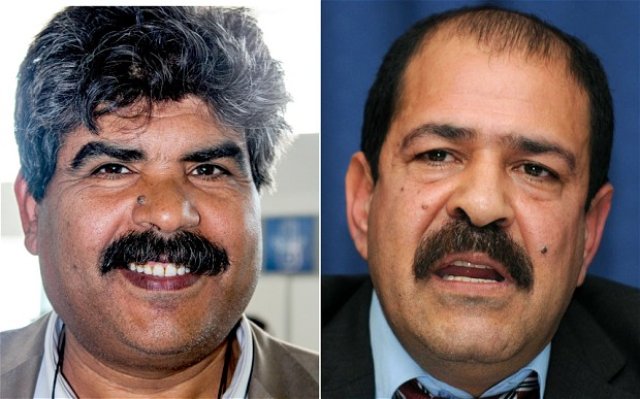
Tunisians are now enjoying the pleasure of thinking up the most improbable “scenarios” of political alliances between political Islamists, militant secularists and left wingers. Why? The Tunisian parliamentary elections of October 26 did not produce a majority party and rumours are everywhere.
For the left, the results have posed serious problems.
In the elections, Tunisians slowed the progress of Tunisian political Islam. Instead, the vote gave a green light to a new centre-right party, Nidaa Tounes, which shelters ex-members of the Democratic Constitional Rally (RCD), the party of ex-dictator Zine El Abidine Ben Ali.
For its part, the Popular Front coalition of left parties managed to beat their forecasted result ― winning 15 seats.
Nidaa Tounes won 85 seats. The party of political Islam, Ennahda, won 69 seats ― down from 89 in the 2011 elections after the revolution that January that brought down Ben Ali.
The UPL of Slim Riahi, a colorful millionaire businessman ― who also happens to be the president of one of Tunisia’s best-loved football clubs, Club Africain ― won 16 seats after a glitzy campaign.
Afek Tounes, a liberal party, won eight seats. A scattering of other parties with a few seats each will make up the rest of the 217-strong National Assembly.
Where now?
But no party has the 109 seats needed for a majority. So where do the main parties now stand?
Messaoud Romdhani, a respected human rights activist and member of the Executive Committee of the militant grass roots NGO, the Tunisian Forum for Economic and Social Rights (FTDES), said: “For Nidaa Tounes things are very clear. It is a neoliberal party … They know what they are doing.”
But in his view, Nidaa Tounes may be overwhelmed by events. He cites as an example the issue of smuggling. The practice provides employment for many Tunisians at the Libyan and Algerian borders, but deprives the government of scarce tax revenue and is said to be connected to terrorist activity.
Seeking to control it will create a social backlash, but failing to act allows terrorists to move weapons and hits tax revenues.
Romdhani is open-minded about Ennahda, saying: “Through the pressure of what is happening in the world, what happened in Egypt, the political assassinations [of left-wing activists Chokri Belaid and Mohamed Brahmi], they have changed their language.
“They have also ― let's be honest ― gained a bit of experience. And they want now to have a place amongst the others.”
Although Nidaa Tounes may choose other allies, Romdhani said the Popular Front are facing the classic left problem, “Are you going to be part of a government that will be formed, or not? Do you enter a process that is not a revolutionary process?”
The Popular Front would be a junior party and may suffer for the harsh neoliberal policies that Nidaa Tounes would put in place. However, if the Popular Front rejects a Nidaa Tounes coalition, it may get the blame for the conservative/Islamic coalition of Nidaaa Tounes and Ennahda that could ensue.
Either way, the Popular Front risks an electoral backlash with local elections due to be held in next year.
Earlier this year, the World Bank issued a report, The Unfinished Revolution: Bringing opportunity, Good Jobs and Greater Wealth to All Tunisians, which said: “The Tunisian economy is plagued by insufficient jobs creation, export performance has been weak, and corruption is widespread.”
In relation to unemployment, the report says: “Unemployment is increasingly concentrated on youth and graduates (from 13.3 percent in 2005 to 31.9 percent in December 2013) … It is at crisis level for women graduates ― 41.9 percent of women graduates were unemployed as of December 2013.”
Salem Ayadi, president of the Union of Unemployed Graduates (UDC), said that Tunisia has 350,000 unemployed graduates. The UDC campaigned in favour of voting but, Ayadi said, “the young are disappointed. After three years they have seen nothing.”
He added: “It is not a boycott, it is just indifference. It is the same whichever party.”
At the same time, the unreformed police ― trained and indoctrinated under Ben Ali ― are re-asserting their authority. They use arrest, charges without foundation ― and sometimes torture ― against bloggers, rappers, young activists and human rights campaigners.
Counter revolution?
The front-runner in the presidential campaign, which kicked off on November 2, is the 88-year-old leader of Nidaa Tounes, Beji Caid Essebsi.
But voters are worried about Nidaa Tounes controlling both the National Assembly and the presidential palace at Carthage. At a rally for the start of the presidential elections campaign on November 2, a supporter of the current president criticised Essebsi and ex-RCD presidential candidates, saying: “They were with the old regime and the [old regime] machine did well during the elections.”
From the left, warning bells are starting to sound. Gilbert Naccache is a respected Tunisian left thinker active since the 1960s. In an interview with Le Courrier de l ‘Atlas, he pointed out that Tunisia’s new constitution gives the president authority to suspend the National Assembly.
Naccache noted: “For Nidaa Tounes, the president they favour is one who will be capable of taking the decision that will be necessary to finish with the revolution.”
Like the article? Subscribe to Green Left now! You can also like us on Facebook and follow us on Twitter.